ICC Champions Trophy 2025: India-Pakistan Hosting Rights Cancelled
The future of the ICC Champions Trophy 2025 hangs in the balance amid escalating tensions between cricketing giants India and Pakistan. The BCCI's demand for a hybrid model and the Pakistan Cricket Board's (PCB) firm stance have led to uncertainty regarding the prestigious tournament's venue and structure.
India-Pakistan Rivalry Over ICC Champions Trophy Hosting
The ICC Champions Trophy 2025, initially slated to be hosted by Pakistan, has become a flashpoint in cricket diplomacy. India has categorically refused to travel to Pakistan, citing security concerns and political tensions. In response, the BCCI proposed a hybrid model, allowing India’s matches to be played at neutral venues. However, the PCB has firmly resisted, demanding either full hosting rights or reciprocal arrangements for Indian-hosted tournaments.
PCB’s Counterproposal: Neutral Venues for India’s Events
Pakistan has set a bold condition: if India insists on a hybrid model for the Champions Trophy, the PCB demands that future India-hosted ICC events, including high-profile matches against Pakistan, be held at neutral venues.
"Decisions should be based on equality, not favoritism. We will not allow one-sided resolutions." – PCB Chairman Mohsin Naqvi
This proposal, if accepted, could fundamentally reshape ICC tournament hosting protocols and the India-Pakistan cricketing dynamic.
Blind Women’s T20 World Cup Hosting Rights Revoked
Adding to the diplomatic discord, India has also lost the hosting rights for the Blind Women’s T20 World Cup 2025. This decision stems from India's refusal to participate in the Men’s T20 Blind World Cup hosted by Pakistan. The World Blind Cricket Council (WBCC) decided to impose sanctions on both nations, barring them from hosting multi-nation tournaments until disputes are resolved.
Also Read: Pakistan Drops PoK From Champions Trophy Tour after BCCI opposed
Key Decisions by WBCC
- Both India and Pakistan are barred from hosting multi-nation tournaments.
- Neutral venues to be considered for resolving visa and travel challenges.
Impact of Political Tensions on Cricket Diplomacy
The last full-fledged bilateral series between India and Pakistan occurred in 2008. Since then, cricketing engagements have been limited to ICC events and Asia Cup matches. Even the 2023 Asia Cup was hosted in a hybrid format, with matches divided between Pakistan and Sri Lanka due to India's refusal to play in Pakistan.
These recurring standoffs underscore how political tensions spill over into the cricketing domain, affecting players, fans, and the sport’s global appeal.
Challenges to ICC’s Vision for Global Cricket
The ICC’s vision of fostering global cricket faces significant hurdles due to the India-Pakistan rivalry. The ICC Champions Trophy 2025's hosting uncertainty is a glaring example. As the ICC navigates these turbulent waters, finding a solution acceptable to both nations is imperative to safeguard the sport's reputation and ensure competitive fairness.
What’s Next for ICC Champions Trophy 2025?
With both countries unwilling to yield, the ICC must decide whether to:
- Adopt a Hybrid Model: Split matches between Pakistan and neutral venues.
- Choose a Neutral Venue: Host the tournament in a third country to avoid controversy.
- Delay the Event: Postpone the Champions Trophy until political and cricketing relations improve.
Possible Neutral Venues
Countries such as the UAE, England, and Sri Lanka have emerged as potential neutral venues due to their infrastructure and experience hosting international tournaments. A neutral venue could provide a temporary solution, but it does not address the root cause of the conflict.
Amid the controversies, Pakistan’s blind cricket team has showcased its mettle by reaching the final of the Men’s T20 Blind World Cup, where they will face Bangladesh. This achievement underscores the potential of sports to inspire and unite, even in challenging circumstances.
The ICC Champions Trophy 2025 and the Blind Women’s T20 World Cup controversies highlight the complex interplay of sports and geopolitics. Resolving these disputes requires diplomacy, compromise, and a focus on the greater good of cricket. As fans await clarity, the ICC faces a daunting task in balancing fairness, security, and the sport's global growth.
Also Read: Broadcaster’s Pressuring ICC to release Schedule of Champions Trophy
Disclaimer
Possible11 is a sports news and analysis platform designed purely for entertainment and educational purposes. All match previews, player insights, and team analyses are based on publicly available information and expert opinions. We do not promote or support betting, gambling, or real-money gaming in any form. Users are encouraged to enjoy our content responsibly and use it for informational purposes only.








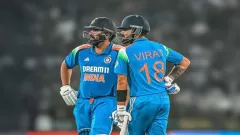





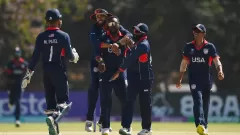
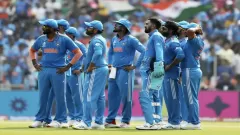



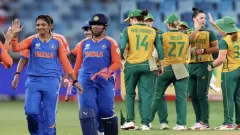


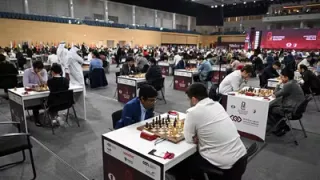



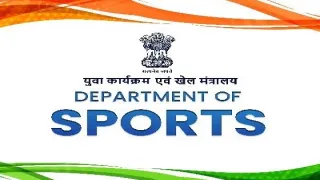
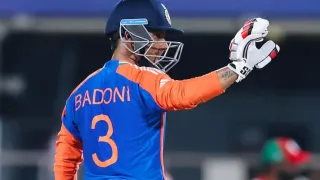




Give Your Feedback